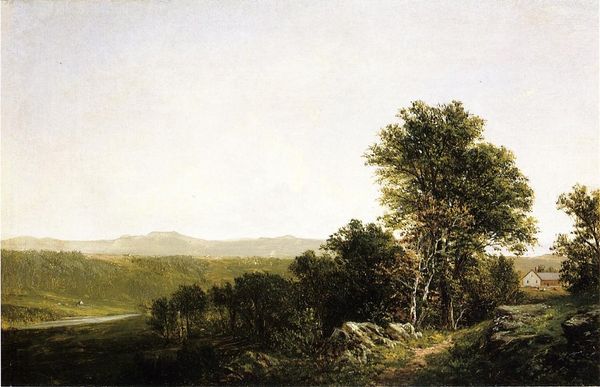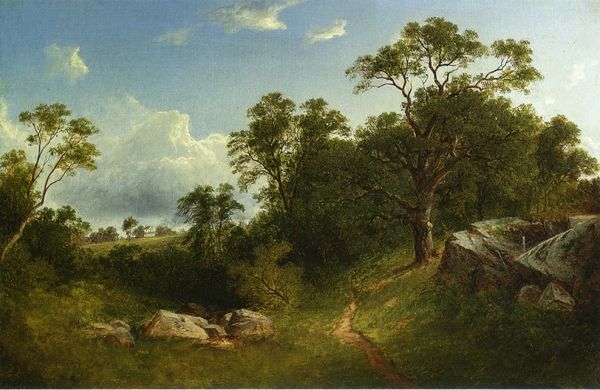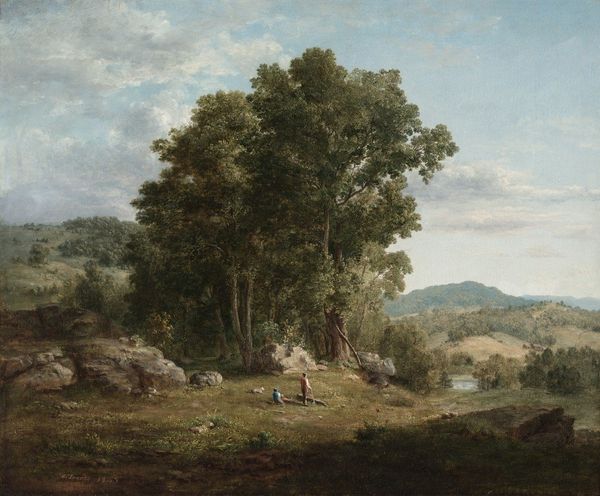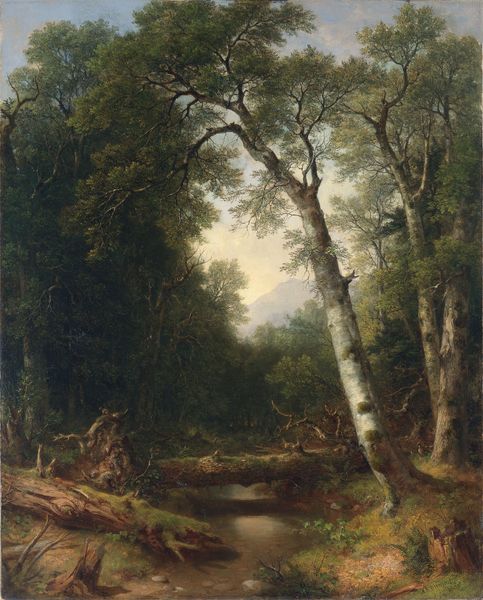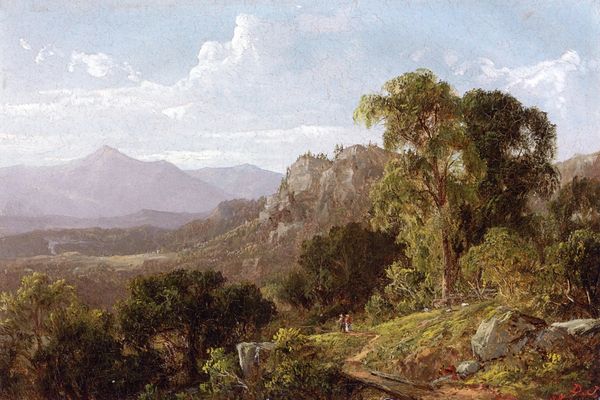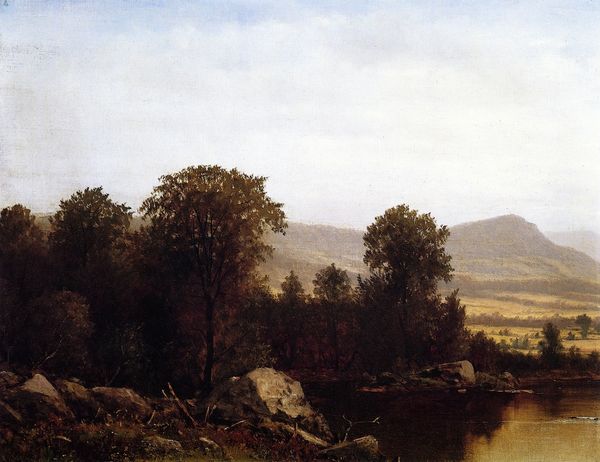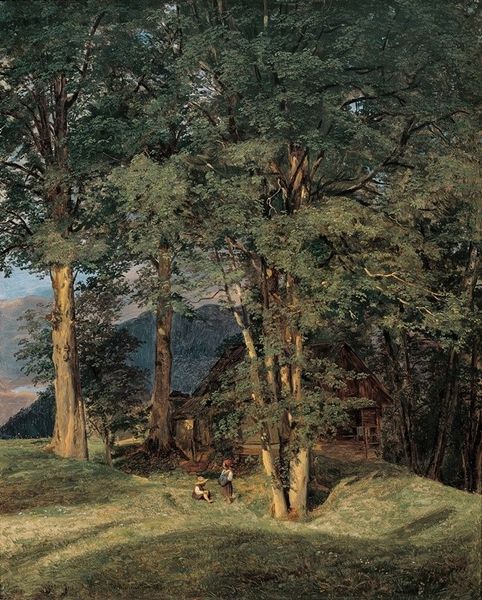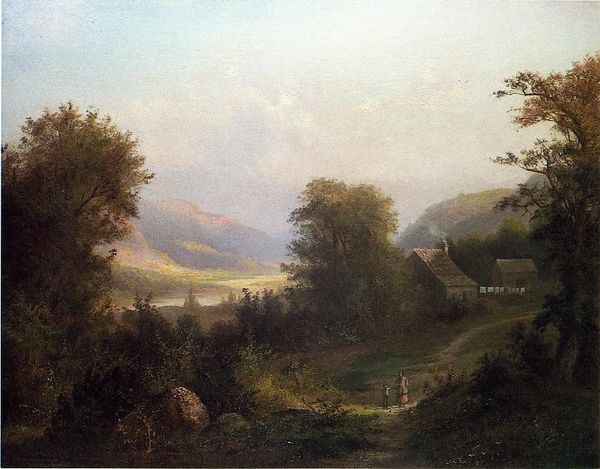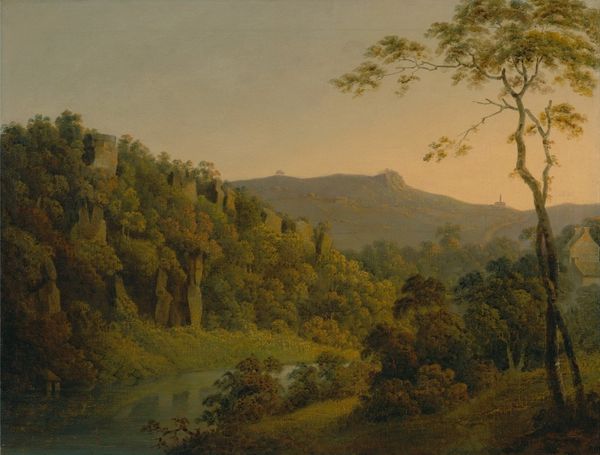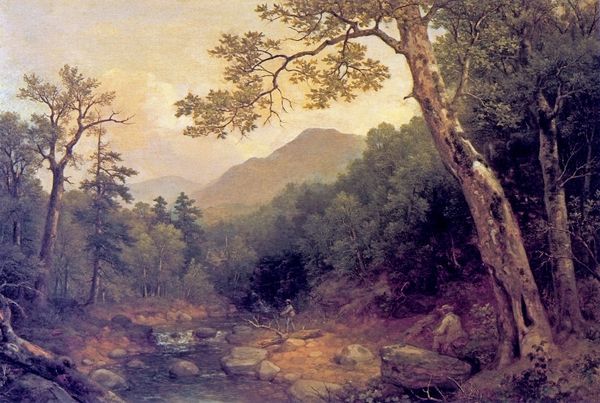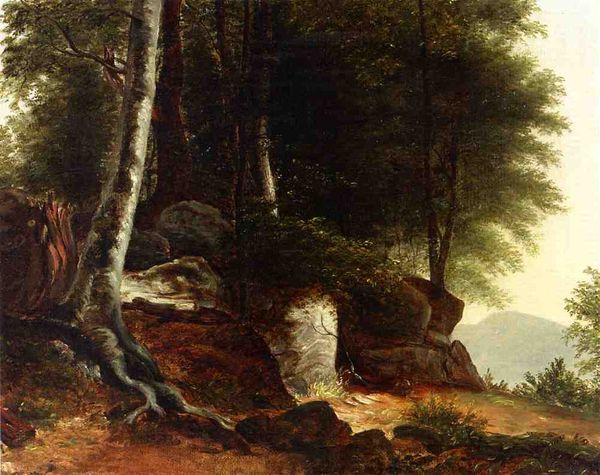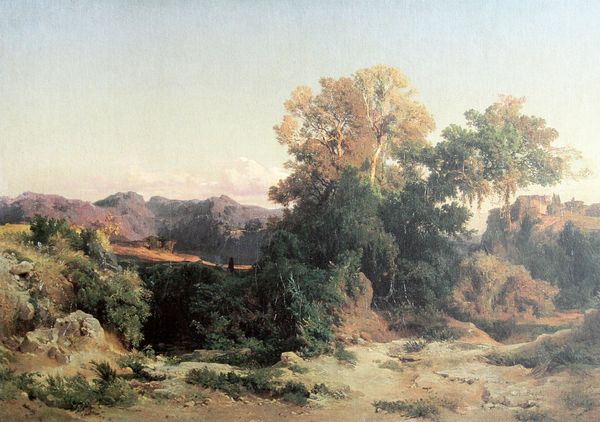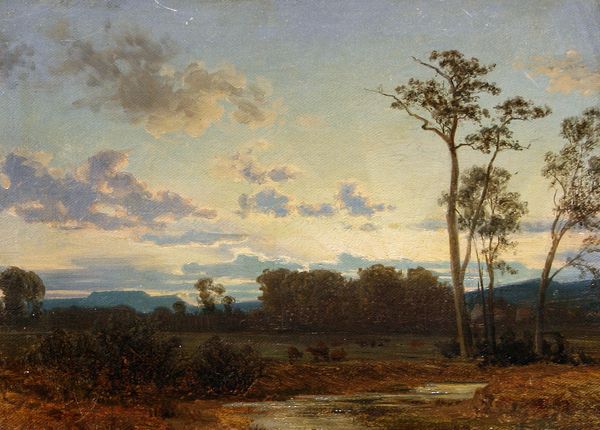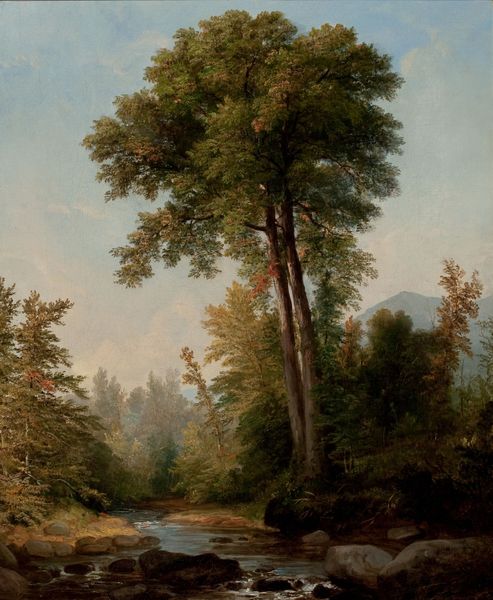
oil-paint
#
oil-paint
#
landscape
#
forest
#
romanticism
#
hudson-river-school
#
cityscape
#
realism
Copyright: Public domain
Editor: Asher Brown Durand's "Woodland Landscape," in oil paint, invites you to step right into this vividly realistic scene. I’m struck by how calming it is. What symbolic language can we unravel in this seemingly straightforward landscape? Curator: Calm, yes, but there's a deep cultural memory embedded here too. Note the interplay of light and shadow – does it evoke a particular feeling, a specific mood tied to, perhaps, an American ideal? Consider also the way the trees are rendered: sturdy, reaching. Editor: They feel like silent witnesses. The trees' presence… is it perhaps meant to suggest strength or resilience? Are there specific historical contexts that shape this imagery? Curator: Absolutely. The Hudson River School, with Durand a prominent figure, equated the American landscape with the sublime. It reflected a sense of national identity intertwined with the land. Think about the symbolic weight of untouched nature in the 19th century: purity, promise, divine presence. Does this "untouched" landscape strike you as literally untouched, or is there something else implied? Editor: Hmm… Now that you mention it, I see a tiny settlement, like a town nestled into the background. That challenges the idea of completely untouched wilderness, doesn’t it? Curator: Precisely. This subtle inclusion adds layers, suggesting both the promise of civilization and the inevitable encroachment upon nature. Durand uses the forest as a cultural canvas, where the collective hopes and anxieties about progress are painted. Do you think this resonates even today? Editor: Definitely. The tension between nature and development is timeless, really. This work is far more complex than just a pretty picture; it is a mirror reflecting who we are as people. Curator: Exactly! By acknowledging these pictorial cues, we see that what endures is our need for places of refuge and, as well, the ever-present pressure of "progress," visibly encoded in nature.
Comments
No comments
Be the first to comment and join the conversation on the ultimate creative platform.
